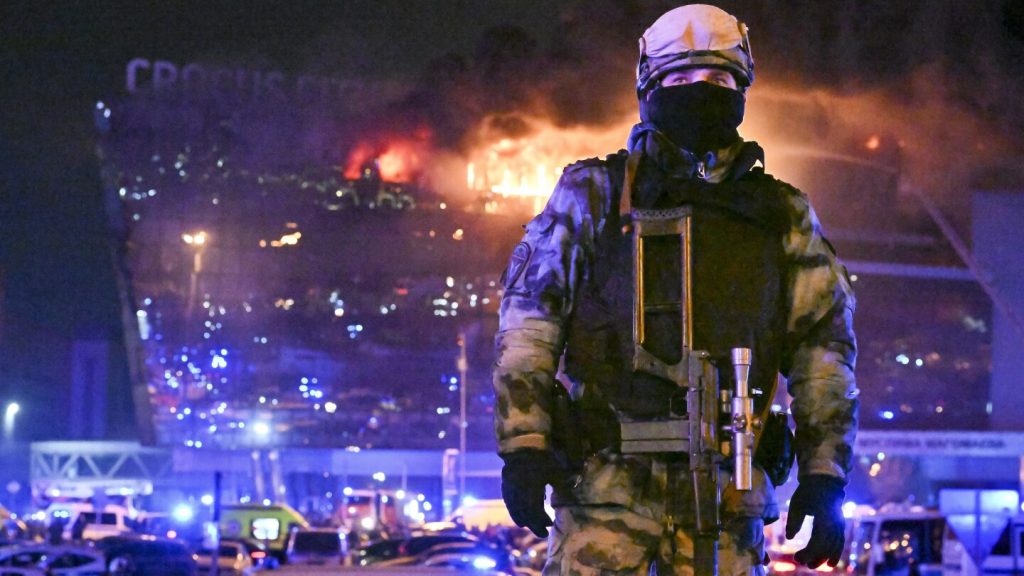Authorities in Russia recently added the international LGBTQ+ “movement” to a government register of extremist and terrorist groups, raising questions about how the country’s vast security services evaluate threats. This move came in the wake of a crackdown on gay and transgender people following a Russian Supreme Court ruling last year. The attack on March 22 that killed over 140 people at a concert hall marked a major security failure under President Vladimir Putin, who has been in power for 24 years. The inclusion of LGBTQ+ activists in the extremist register has brought attention to the government’s response to security threats.
Russia’s security apparatus has been heavily focused on stifling political opposition, independent media, and civil society groups in recent years. Following the invasion of Ukraine, these repressions have intensified, with individual protesters quickly quashed by riot police. Opposition groups are often labeled as extremists, resulting in severe penalties for anyone associated with them. In the case of the LGBTQ+ “movement,” it was added to the government’s register of extremist and terrorist organizations, along with opposition leader Alexei Navalny’s political network.
After the concert hall attack, the Russian government faced criticism for its inadequate security measures. Despite warnings from the U.S. government about a possible attack, security forces failed to prevent the gunmen from carrying out the massacre. The initial response to the attack was bungled, with a delayed arrival of anti-terrorism units and confusion about the whereabouts of the attackers. While authorities eventually apprehended the suspects, questions remain about the effectiveness of Russia’s security forces in ensuring the safety of citizens.
The aftermath of the attack has been marked by a confusing and mixed message from the Kremlin. While President Putin initially did not mention the Islamic State group as the perpetrators, he later acknowledged the involvement of “radical Islamists.” Despite the Islamic State affiliate claiming responsibility, Putin and his security chiefs attempted to link the attack to Ukraine, despite Ukrainian denials. Additional suspects were detained, with an ongoing search for more accomplices, as Putin ordered investigators to find the masterminds behind the massacre.
The possibility of Ukrainian involvement in the attack could set the stage for Putin to escalate the conflict in Ukraine and tighten the crackdown on critics at home. However, it is unlikely that Putin will reshuffle the leadership of security agencies, despite the security lapses that led to the attack. With leading opposition activists in prison or abroad and independent media suppressed, Putin remains firmly in power and insulated from public criticism. The government’s focus on blaming Ukraine distracts from the failures of law enforcement agencies and continues to support Putin’s narrative.


